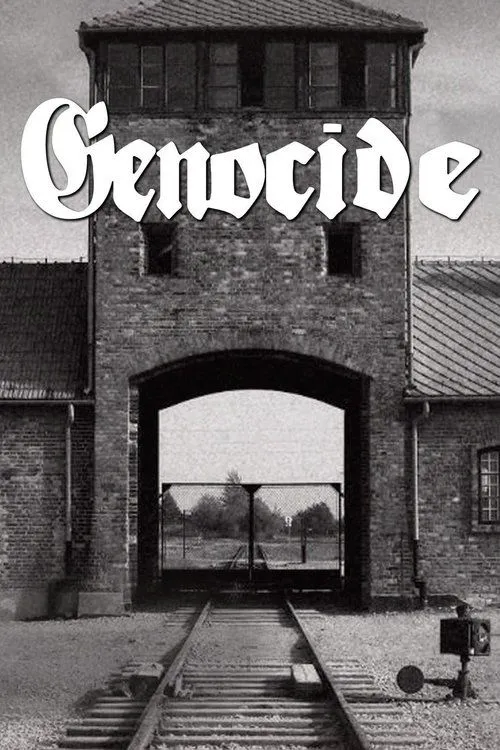Genocide

Plot
Genocide is a 1992 documentary film directed by Arnold Schwartzman, which delves into the atrocities committed by the Nazi regime during the Holocaust, resulting in the mass murder of millions of Jewish people. The film aims to chronicle this period in history and serve as a warning that the events of the Holocaust could happen again in the future, highlighting the rising trend of anti-Semitism that threatens Jewish communities worldwide. The documentary begins with a historical overview, showcasing the rich and diverse European Jewish culture that existed before the outbreak of World War II. The film takes viewers on a journey through time, using newsreels, photographs, and animated segments to bring to life the events leading up to the Holocaust. From the early 20th-century rise of Nazism in Germany, to the establishment of ghettos and concentration camps, the documentary meticulously details the systematic persecution and murder of the Jewish population. The words of the victims themselves are woven throughout the narrative, providing a personal and emotionally charged account of the atrocities they endured. Their testimonies serve as a poignant reminder of the human cost of the Holocaust, and the devastating impact it had on individuals, families, and communities. One of the most striking aspects of the film is its use of footage from the liberation of concentration camps, which provides a harrowing glimpse into the conditions in these facilities. The images of emaciated bodies, piled high in mass graves, and the survivors, struggling to come to terms with the trauma they have experienced, are deeply unsettling and serve as a powerful indictment of the Nazi regime. Throughout the documentary, Schwartzman makes use of a wide range of sources, including personal testimonies, newsreels, and historical records, to create a comprehensive and engaging narrative. The film's use of interviews with Holocaust survivors and their families adds a personal touch, providing insights into the experiences of those who lived through this period. The documentary also examines the context in which the Holocaust took place, highlighting the factors that contributed to its occurrence, including the rise of Nazi ideology, the failure of Western democracies to intervene, and the complicity of ordinary Germans in the atrocities. By exploring these complex historical and social factors, the film provides a nuanced understanding of the events that led to the Holocaust. Perhaps most importantly, Genocide serves as a warning that the events of the Holocaust could happen again. The film highlights the worrying trend of rising anti-Semitism, which threatens to undermine the progress made towards greater understanding and acceptance between different cultures. By sharing the stories of those who suffered during this period, the documentary aims to educate viewers, raise awareness, and inspire action to prevent the recurrence of such atrocities in the future. In conclusion, Genocide is a powerful and thought-provoking documentary that sheds light on one of the darkest periods in human history. Through its use of a wide range of sources and its personal testimony, the film provides a comprehensive and engaging narrative that serves as a reminder of the importance of understanding and respecting the experiences of others. By highlighting the warning that anti-Semitism is on the rise, Genocide encourages viewers to take action to prevent the recurrence of atrocities in the future, making it a must-watch for anyone interested in history, social justice, and human rights.
Reviews
Recommendations




